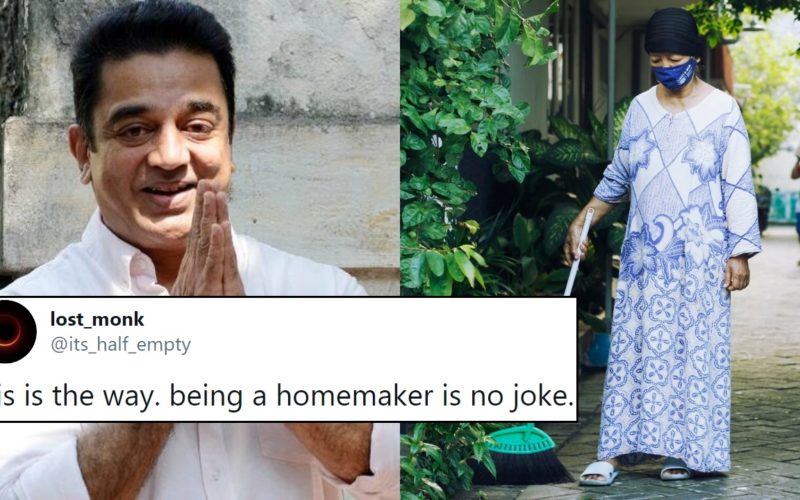Last month, veteran actor Kamal Haasan had suggested that housework should be recognised as a paid profession. Supporting his suggestion, politician Shashi Tharoor tweeted that recognising housework as a profession will “enhance a woman’s power and autonomy” and will create a “near-universal basic income”.
Just a few weeks after the two men suggested it, a divorce court in Beijing has ordered a man to compensate his wife for the housework she did during their marriage. According to the landmark ruling, the husband is to pay her 50,000 yuan (Rs 5.6 lakhs) for the unpaid labour his wife has been doing for the past 5 years, reports BBC.

The couple had got married in 2015. After the husband filed for divorce, the woman requested financial compensation alleging that her husband helped her neither in household chores nor shared their son’s responsibilities.
During the ruling, the judge said that in case of a divorce, tangible property is split amongst the couple, generally. However, he went on to add:
“Housework constitutes intangible property value.”

The ruling was made according to the country’s new civil code under which a spouse is “entitled to seek compensation in a divorce if he or she bears more responsibility in child-raising, caring for elderly relatives, and assisting partners in their work.”
People online lauded the court’s decision. Here’s what some of them said:
Women have almost always shouldered the responsibility of house work and child care. This is hardly enough to compensate for such labour. https://t.co/Tt6qV3N6Jm
— Sabah Jalal (@SabahMariamJ) February 24, 2021
Not a huge sum of money but it's good to see the court in China recognised the work the wife put into raising the child & housework https://t.co/hq6RtypGIU
— NikkyBriggs1 (@NikkyBriggs1) February 24, 2021
😂
China.
Now more progressive than the UK.
In some ways, I suspect it always was! https://t.co/RWaAazkR1C
— Legally Privileged #TheResistanceUK 💙 (@LPrivileged) February 24, 2021
Definitely a step in the right direction to recognising unpaid labour but grossly undervalued! I think the ONS estimates unpaid household service work at £1.24 trillion, 63% of GDP in the UK alone https://t.co/36abaQj2tR
— Jacob Hawkins (@JakeHawks96) February 24, 2021
this is the way. being a homemaker is no joke.
— lost_monk (@its_half_empty) February 24, 2021
When Kangana Ranaut had slammed Tharoor and Haasan’s suggestion, she mentioned that women don’t need salaries to be “queens” of their “own little kingdom”. Critics pointed out that such a perspective comes from the “sexist association of domestic chores with women” and justifying unpaid labour as a wife’s/mother’s “love” and “duty”.

The idea of recognising household work as a paid profession needs to be seen from the lens of age-old patriarchal conditioning, gender roles, and an invisible (or visible) hierarchy in many Indian families. Paying women for household chores not just improves the financial condition of a family but could also make them financially independent, thereby promoting gender parity.




